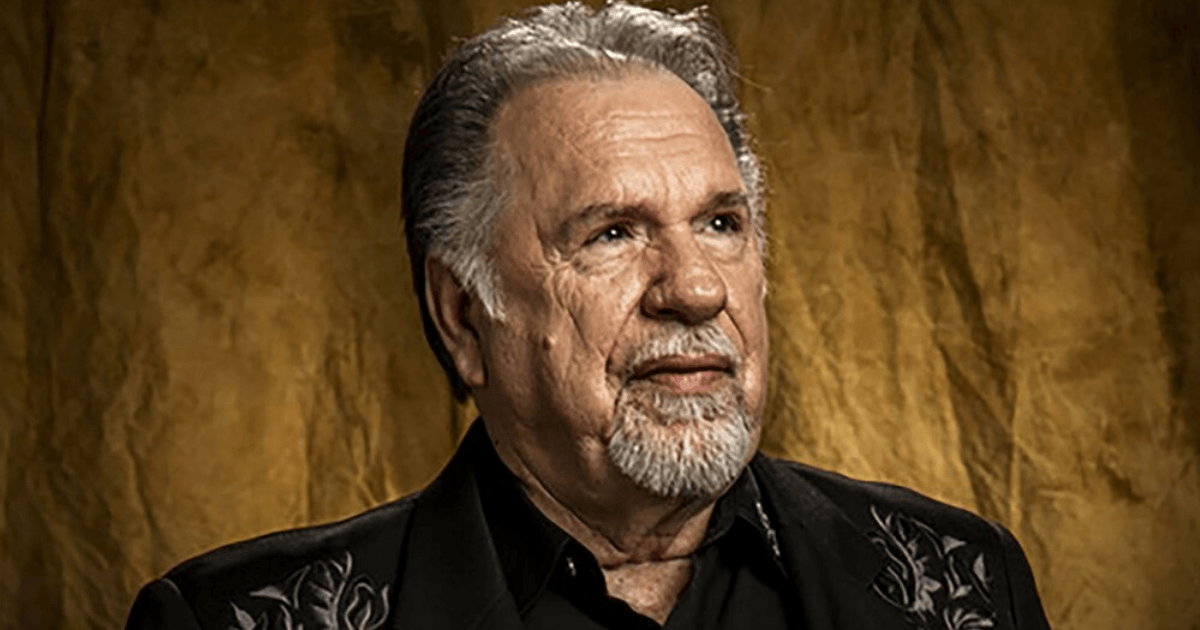About the song
“The Old Man and His Horn” is one of the most touching and beautifully constructed story-songs in Gene Watson’s extensive country catalog. Released in 1977 on his album Paper Rosie, the song quickly became a standout track thanks to its sensitive storytelling, polished traditional-country production, and Watson’s unmistakably smooth vocal delivery. While Gene Watson is widely known for his flawless tone and honky-tonk authenticity, “The Old Man and His Horn” reveals another layer of his artistry: the ability to convey profound emotion through quiet, heartfelt narrative.
At its essence, “The Old Man and His Horn” is a character-driven story about loneliness, fading dreams, and the tender connection between strangers. The song centers on an elderly man who sits alone in a bar, holding onto his old brass horn—the instrument that once represented his youth, talent, and purpose. A younger narrator encounters him, listens to his memories, and watches him attempt to play the horn once more. What follows is a deeply emotional portrait of aging, loss, and the enduring power of music to preserve the traces of a life well-lived.
Gene Watson’s interpretation is masterful because he never over-sings the story. His voice—smooth, controlled, and warm—honors the gentle sadness embedded in the lyrics. Rather than using vocal showmanship, Watson lets subtlety guide the emotional weight of the song. His delivery feels almost conversational at times, making listeners feel like they are right there in the bar, witnessing the old man’s fragile attempt to revive his past.
Musically, the recording stays faithful to classic 1970s country arrangement. The song features soft electric guitar, understated steel guitar flourishes, light percussion, and a melody that moves slowly enough to spotlight the lyrics. The production avoids exaggerated crescendos; instead, it maintains a steady, reflective pace that suits the old man’s quiet dignity. Every instrumental choice is designed to support the storytelling, ensuring that nothing pulls focus away from the emotional core.
Lyrically, “The Old Man and His Horn” is deeply evocative. The horn becomes a symbol of ambition, youth, and the dreams the old man once pursued. He remembers playing music during his prime—perhaps in dance halls or small town shows—and the pride he once felt performing for others. Now, time has weakened his skills, and he struggles to produce even a single clean note. The painful moment when he attempts to play and fails is one of the most heartbreaking scenes in all of country music storytelling. It captures the universal fear of losing something we once held dear—whether it’s talent, purpose, or identity.
Yet the song is not purely a portrait of despair. There is also a quiet admiration in how the narrator perceives the old man. He sees not just a lonely stranger but someone who lived a life filled with passion and artistry. His sadness is framed with respect, acknowledging the old man’s humanity and the beauty of his memories. That sense of compassion is a hallmark of Gene Watson’s storytelling choices—he often selects songs that allow him to express empathy, maturity, and emotional depth.
Another reason the song resonates so strongly is its timeless theme. Everyone, no matter their age, understands what it means to hold onto a part of the past. Some cling to photographs, journals, or letters; the old man clings to his horn. Through this object, he keeps alive the version of himself that the world has forgotten. Watson’s gentle performance encourages listeners to reflect on their own cherished memories and recognize the quiet dignity of the elderly.
“The Old Man and His Horn” also stands as a powerful reminder of Gene Watson’s skill in choosing material. His career has been built on songs with strong emotional cores—pieces that carry a message, a memory, or a moral. In this track, his vocal restraint is what gives the song its lasting resonance. Instead of overwhelming the listener with intensity, Watson uses subtle emotion, allowing the sadness and beauty of the story to reveal themselves naturally.
In the broader scope of his career, “The Old Man and His Horn” remains one of his most beloved narrative recordings. Fans often cite it as a song that demonstrates Watson’s ability to deliver story-songs with absolute sincerity. It shows that he is not only a technically superb vocalist but also a deeply sensitive interpreter who understands the emotional heartbeat of every lyric he sings.
In summary, Gene Watson’s “The Old Man and His Horn” is a tender, quietly devastating masterpiece of country storytelling. With its 1977 release, heartfelt narrative, symbolic depth, and Watson’s elegant vocal performance, the song continues to touch listeners with its portrayal of aging, memory, and the fragile beauty of life’s fading passions.
